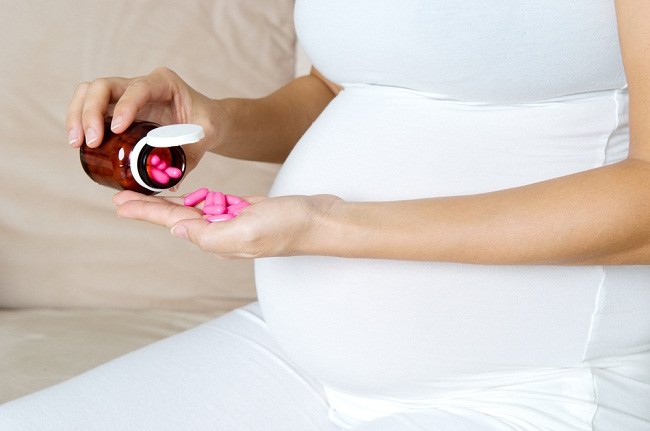Ganciclovir is an antiviral drug used to prevent and treat infections cytomegalovirus (CMV). Ganciclovir should only be used as prescribed by a doctor.
Cytomegalovirus (CMV) is a viral infectious disease that often attacks people with weakened immune systems, for example due to HIV/AIDS or taking immunosuppressant drugs after an organ transplant.

Ganciclovir will inhibit the proliferation of the virus by stopping the formation of viral DNA. That way the spread of the virus can be slowed down. Please note that ganciclovir cannot cure CMV virus infection.
Ganciclovir trademark: Cymevene
What's that Ganciclovir
| group | Prescription drugs |
| Category | Anti Virus |
| Benefit | Treat infection cytomegalovirus (CMV) |
| Consumed by | Mature |
| Ganciclovir for pregnant and lactating women | Category D:There is positive evidence of risks to the human fetus, but the benefits may outweigh the risks, for example in dealing with life-threatening situations. It is not known whether ganciclovir is absorbed into breast milk or not. If you are breastfeeding, do not use this medicine without consulting your doctor first. |
| Drug form | Inject |
Precautions Before Using Ganciclovir
There are several things you should pay attention to before using ganciclovir, including:
- Tell your doctor about any allergies you have. Ganciclovir should not be given to patients who are allergic to this drug, acyclovir, or valganciclovir.
- Tell your doctor if you have or have ever had kidney disease or such as anemia, thrombocytopenia, or leukopenia.
- Tell your doctor if you are on dialysis or radiotherapy.
- Tell your doctor if you are pregnant, breastfeeding, or planning a pregnancy. Use effective contraception during treatment with this drug
- As much as possible, avoid close contact with people with infectious diseases that are easily transmitted, such as the flu or measles, during treatment with ganciclovir, because this can increase the risk of contracting it.
- Tell your doctor if you plan to get vaccinated with live vaccines, while on treatment with ganciclovir.
- Tell your doctor if you are taking certain medications, supplements or herbal products,
- See your doctor right away if you have an allergic drug reaction, overdose, or serious side effects after taking ganciclovir.
Ganciclovir Dosage and Rules
Ganciclovir is used to treat and prevent infectioncytomegalovirus (CMV). The following are ganciclovir doses for adults based on their treatment goals:
Purpose: Treatment cytomegalovirus (CMV)
- The initial dose is 5 mg/kg, every 12 hours, for 14–21 days.
- The maintenance dose is 5 mg/kg, once a day, every other day; or 6 mg/kg, once daily, for 5 days a week. The duration of treatment will be determined by the doctor.
Purpose: Prevention cytomegalovirus (CMV) in patients with weakened immune systems
- The initial dose is 5 mg/kg every 12 hours for 7–14 days.
- The maintenance dose is 5 mg/kg, once a day, every other day; or 6 mg/kg, once daily, for 5 days a week. The duration of treatment will be determined by the doctor.
How to Use Ganciclovir Correctly
Ganciclovir injection will be given directly by a doctor or health worker under the direct supervision of a doctor at the hospital. Follow the doctor's advice and directions before, during, and after ganciclovir injection.
Ganciclovir is given by infusion into a vein (intravenous/IV) slowly over 1 hour. You are recommended to drink more water while undergoing treatment with ganciclovir,
During treatment with ganciclovir, you will be asked to undergo a complete blood count, to monitor your condition
Ganciclovir Interactions with Other Drugs
The following are some of the effects of interactions that may occur if ganciclovir is used together with other medicines:
- Increased risk of kidney damage if used with cidofovir or itonersen
- Increased risk of severe and fatal infection if used with drugs that have immunosuppressive effects, such as adalimumab, certolizumab, cladribine, etarnecept, or golimumab
- Increased risk of bone marrow damage that can lower blood cell counts if used with clozapine, deferiprone, or zidovudine
- Increased risk of side effects, such as seizures, diarrhea, or jaundice, if probenecid is used
- Increased risk of side effects, such as stomach upset, nausea, vomiting, diarrhea, or irregular heartbeat, if used with didanosine
Side Effects and Dangers of Ganciclovir
There are several side effects that can appear after ganciclovir injection, including:
- Nausea, diarrhea, stomach pain, no appetite
- Dizziness or sleepiness
- Lost balance
- Tremors or shaking
- Pain, swelling, or redness, at the injection site
Check with your doctor if these side effects don't go away or get worse. In addition, see a doctor immediately if you have an allergic reaction to the drug or experience more serious side effects, such as:
- Hallucinations or confusion
- Infrequent urination or very little urine
- Low white blood cell count (neutropenia), low platelet count (thrombocytopenia), or anemia
- Sepsis or infection that spreads throughout the body
- Pain or numbness, in the hands and feet (neuropathy)









